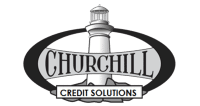Many Americans are faced with debt they cannot handle, and debt settlement programs are one of the more popular options for resolving debt. The prospect of wiping out your debt, or a portion of the debt, can seem quite appealing, especially when it comes to credit card debt. However, it is important that you know what to expect in the process of debt settlement before committing to it as a means of getting out of debt.
What is Debt Settlement?
Debt settlement, which can also be called debt negotiation, debt arbitration, or credit settlement, is a form of debt relief that aims to “settle” a debt for a smaller amount of money than the total sum owed. The goal behind debt settlement is to clear all debts for a smaller amount and resolve the issue completely, leaving people debt-free. The amount you can expect to settle for depends on your creditor. Some creditors will agree to settle a debt for as little as 10%. On the other hand, specific lenders might not be so generous, only giving you about 80% leeway on your debt. Knowing your creditors and being able to negotiate will determine the total sum you can settle for.
While it is possible to handle debt settlement on your own successfully, it is recommended that you hire the services of a professional to help you pay off your debt. This is because professionals have much more experience in working with creditors. Not only will they guarantee that your creditors take you more seriously, but they are much more likely to be successful in settling your debt than if you were to do it on your own. When choosing a debt setting company, it is important to pick one that is reliable and professional. Make sure you do some research before entrusting your financial well-being to a company.
Why Would Creditors Agree to Settle?
One of the biggest questions that people have is, “Why would my creditors accept to settle my debt for a lower amount?” The simple answer to this is that they want to get paid. Lenders and credit card companies usually look for a way to get the biggest return from someone in debt. The simple fact of the matter is that creditors hardly, if ever, experience an overall loss. Their system is designed to cover possible defaults. This means that they are likely to be in the black, even if you don’t pay the full amount. It is in their best interest to collect as much money as possible, and in situations when they see that a debtor is having difficulties in repaying their debt, creditors would much rather accept a smaller sum of money than let the debt default.
What Does the Debt Settlement Process Look Like?
If you are considering debt settlement to pay off your debt, it is important to know what to expect during the process. In most cases, you will stop making minimum monthly payments if you are on the verge of default and have exhausted all other options. The purpose of this step is to show creditors that you are financially struggling. You will either keep the money aside (if you are handling it on your own) or give it to the debt settlement agency working for you, and they will hold it in a special trust with your name on it. After enough time has passed and enough money saved, the agency will contact the creditors to begin debt negotiation. Debt can be settled for a lump sum or a series of payments, as long as the creditor agrees. However, it is important to note that lump-sum payments can be more effective when settling a debt. Now that you have a clearer picture of the debt settlement process, it is time to decide if it is the right step for you. We are going to look at the pros and cons that come with settling a debt.
Pros of Debt Settlement
There are many benefits to settling a debt. These include:
● Paying Less Money
One of the biggest pros of settling debt is the fact that you do it for a lower sum of money. This means that you can end up saving money in the long run. Not only does settling a debt cut down the initial sum of money owed to a lower amount, but it can also reduce the amount you would have paid in interest if you had continued paying the minimum amount each month.
● Relieving Stress
The amount of stress that the financial burden of debt carries is immense. The feeling of getting rid of this stressor is invaluable. Not only do the constant calls and letters stop coming from your creditors or a collection agency, but it also gives you back some peace of mind and enables you to start over.
If you choose to work with a team of debt settlement pros, you will also receive credit counseling and financial education. Debt settlement companies can give you the tools and financial literacy
you need to take charge of your personal finances.
● Avoiding Bankruptcy
The main reason why many people opt for debt settlement is to avoid bankruptcy. This is something that can follow you around for the rest of your life, and it will have a huge impact on your credit. While it only remains on your record for ten years, many creditors and jobs will ask if you have ever filed for bankruptcy. Settling debts with creditors helps you avoid the troubles of bankruptcy. While it might stay on your record with major credit bureaus for the next seven years, it does not stay on any public record. Once those seven years have passed, you will never need to speak of it again. It is a much more discrete process.
Cons of Debt Settlement
While debt settlement has many benefits, it is not without risk. These are some of the cons to debt settlement that you should consider.
● You Credit Takes a Hit
Due to the way the debt settlement process works, you are going to experience a temporary dip in your credit score. This is because you will have to stop making monthly payments altogether. This means that your account will become delinquent, which is one of the biggest cons of debt settlement. Delinquent accounts will stay on your credit report for seven years. However, new FICO formulations are emphasizing debt levels over payment history, so when your debt is settled, and zero balance is reported, you should start to see your credit score heal at that point.
● You Might Owe Taxes
It is important to keep in mind that the IRS looks at forgiven debt as a form of taxable income. What this essentially means is that you might end up paying taxes on the settled debt. In reality, most debt settlement clients do not. With proof of insolvency, liability can be reduced, but it is best to consult with professionals to make sure you know your tax obligations during a debt settlement.
Debt settlement is a viable way to resolve your unsecured debts and get debt relief. However, it is important to be aware of the potential risks it carries. Like anything in life, there is no such thing as a “perfect solution,” but there are options that work. In order to minimize the negative aspects of debt settlement, it is important to work with professionals who offer proven debt settlement programs. Churchill Credit Solutions offers an experienced team that is backed by professional attorneys. Our goal is to help you resolve debts with the best possible terms.



